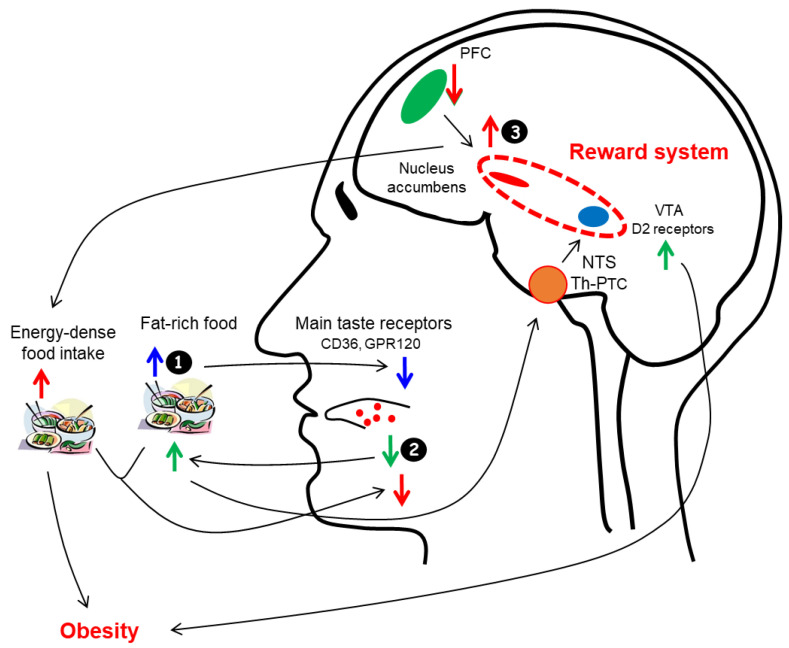Figure 2.
Schematic representation of “cross-talk” between fat taste perception, the brain reward system and obesity. In the first hypothesis (❶), fat-rich food intake decreases the taste for fat by a negative feedback mechanism. In a second hypothesis (❷), low fat taste sensitivity could increase the consumption of high-fat foods in order to activate the reward system. In the third hypothesis (❸), overactivation of the reward system could induce high consumption of high-energy and high-fat foods and consequently decrease fat taste sensitivity, thereby promoting the development of obesity. PFC, prefrontal cortex; VTA, ventral tegmental area; NTS, nucleus tractus solitaries; Th, ventroposteromedial nucleus of the thalamus; PTC, primary taste cortex. ↑ and ↓ indicate respectively, increase/activate and decrease/inactivate.

